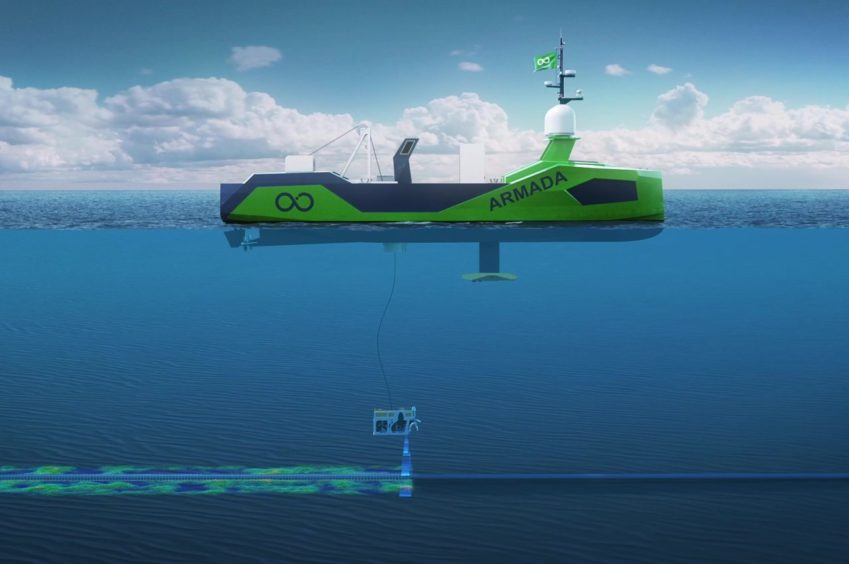
Ocean Infinity Group has announced the launch of its Armada project, which aims to cut emissions for survey work through the use of unmanned vessels.
The company is in the process of building 15 ships, a combination of 21 and 37 metre vessels. Some of the smaller ships will be available in the fourth quarter of this year, officials said at a launch event in London’s Science Museum. The rest will be ready in 2021. At the heart of the new offering is a focus on sustainability and data.
The unmanned vessels will be able to launch ROVs and carry out surveys, on pipeline routes or the acquisition of seismic.
“Armada is a revolutionary step in our industry. Four years ago, Ocean embarked upon the use of autonomous underwater vehicles [AUVs], with Armada we unveil robotic shipping: A fleet of 15 low emission robotic ships,” Armada’s managing director Dan Hook said.
The ships will be deployed worldwide and can operate individually or as a fleet, he continued, from shallow to the deepest waters. The robotic fleet will not require a host vessel, avoiding the emission of 90% more carbon dioxide than conventional methods, the company said. The smaller vessels can be delivered to locations by air, while the larger ones will need to be moved by ship.
Rather than having crew on the survey ships, they will be overseen from an onshore control centre and piloted through GPS and satellite communications. At the same time, data will flow from the vessels, providing those who have commissioned work to receive information quickly.
There will be vessels able to support the Armada fleet, in case of problems or malfunctions, but these will primarily be located close to shore.
Ocean made much of the environmental qualifications of its Armada project. Emissions will be reduced through improved propulsion efficiency, with the vessels sometimes being able to run on electric power alone, backed up by a tree planting initiative with the Woodland Trust.
“Sustainability is at the heart of what we do. Armada will be carbon neutral from the start,” Hook said. The robotic vessels will emit one tenth of the amount seen from conventional vessels. “Armada will be making a significant difference in offshore operations.” Given increased awareness of carbon footprints from the energy majors, this may well prove to be an attractive point.
Another benefit will come in the form of safety. Reducing the need for people to be offshore makes operations safer, while also reducing the potential for kidnap-focused pirates to strike. Armada officials allowed there might be cost savings, but chose to emphasise the sustainability and data provision aspects.
“We are investing in the underlying technology to make operations as safe and efficient as possible,” Hook said. While there might be some in the audience who might be sceptical, the official continued: “I couldn’t be more confident. The vessels are in build, this is happening, they will be operational this year.”

